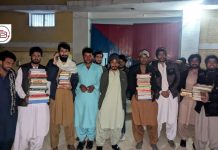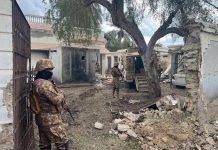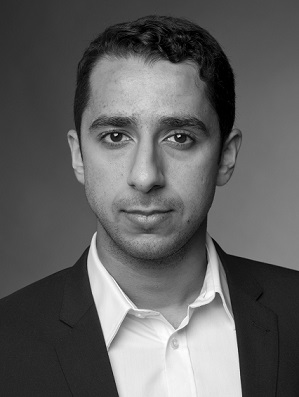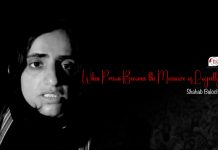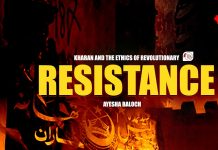There are many opinions surrounding the Baloch language. Some prefer the more European rhythm of the western Balochi, namely those of Chahbahar and Qasr-e-Qand; others prefer the more rapid flow of Baloch speakers in Quetta. Yet some show favor towards the more traditional clangs of Balochi living in the heartland of our great country.
Indeed, one may have many opinions regarding the proper way to speak our language, and many thoughts as to which accent best represents the Balochi character. But one sentiment which stands out as unacceptable amongst our peoples, is those of many parents living in the more modern areas of Pakistan and Iran. Specifically, these people have chosen not to teach their children the Balochi language, and the reasons are varied: Some would prefer to teach their children the national language of the country they happen to be residing in, and others have gone down the pathological road of considering the Baloch language to be lowly, beneath the grandeur of Farsi and Urdu.
To be sure, there exist many genuine and disrespectable reasons for taking such an attitude towards our ancient language: For example, many worry that their children won’t know the national language properly, and so spend all their time teaching them Urdu and Farsi, in hopes that they will be able to get into the greatest universities. But as someone who lives in Sweden, where immigration is heavy, I can assure you that, although being a laudable worry, it is unfounded. For immigrant parents actually worsen the way in which their children speak the national language. Specifically, because they don’t know how to properly speak Swedish themselves, they end up transmitting their faulty accents and grammatical errors to their children.
It is rather those children who speak their mother-language at home, and whom instead learn Swedish from actual Swedes, who end up speaking the national language properly. And similarly, Baloch parents will only ensure that their children adopt their own faulty accents of Urdu and Farsi, should they try to speak these languages at home. Instead, they would do better in letting their children explore the national language for themselves, when out spending time with those who actually know it. Additionally, studies in Scotland have shown that English students whom were assigned to learning another language, actually became better at speaking English as compared to their monolingual classmates, despite not spending more time studying their national language. This indicates, according to scientists, that knowing multiple languages improves your general understanding of language.
Further, we must consider what depriving a Baloch child of his language does to his character. For being a child of a greatly unique and ancient culture, he will be disposed to a temperament and personality specific to our people. The way he walks will be Balochi in its gait, the way he talks will be Balochi in the way he asserts his individuality, and the way he perceives the world will be uniquely Balochi, in that he perceives the value in creating a democratic and secular society. But being disposed towards a unique personality, he will always be at the influence of nearby peoples whom lack the Balochi character, and will thus be split between different attitudes – if he then lacks the ability to speak our language, and thus to explore our culture in interactions with other Baloch’s, he will remain in a state of indecision between Balochi and other cultures. But even then, he will be inclined towards the Baloch way of life – only, he won’t be able to express it, since he lacks the ability to read the works of our great poets, to listen to the stories of Baloch warfare by his grandparents, and to properly understand the nuance with which Baloch musicians color our vast deserts. Rather, he will always feel incomplete, always reaching towards a Baloch state of mind which he lacks the knowledge to express and experience – indeed, he will be like a warrior without his sword.
Studies have partially expressed these sentiments, in that it has been shown that people switch between different mindsets depending on the language they are speaking; when speaking German, a man adopts a distinctly German attitude towards explaining objects and persons, and when switching to English, his way of perceiving the world becomes more definitely American. And so we can understand the conflict of mind which occurs in the Baloch child, who, although raised by Baloch parents, lacks the ability to express an integral part of his personality, and is doomed to donning an artificial version of the personality of Persians and Punjabi’s.
Further, science has provided us with ample evidence of the benefits of knowing two or more languages: with the mental energy it takes for children to learn more than one language, their brains become stronger, so to speak, in that their ability to focus and to switch between different activities become more efficient.
Bilingual students are further shown to experience more happiness and willingness to study. Further, aging people who know two or more languages have shown themselves to be vastly more resistant to dementia than their monolingual peers, and in a group of 600 survivors of stroke in India, bilinguals were twice as likely to recover from their extensive damage. Certainly, one can’t deny that teaching your children will not only make them more proficient in the national language and more developed in their character, but also ensures that their brains are made ready for life’s challenges. With the responsibility of keeping our culture intact being laid upon coming generations, it will be all the more crucial for our young people to be smarter, more focused and more whole in their characters than their Punjabi and Fars peers, as the governments of Pakistan and Iran will do all they can to prevent our growth.
And in the end, teaching our children to speak the language of our ancestors is a matter of ethnic survival. For witnessing the abductions of innocent Baloch by the Pakistan government, the incessant attempts by Iran to outnumber local Baloch with Persian immigrants and with attempts by both to burn Baloch books, remove the original Baloch names of towns and to forbid the Baloch language in school – with all these goings on, it stands clear that we Baloch are standing at a crossroads. Similar to the Kurds and the Catalans, who have both just decided to take their fates into their own hands, and to now sacrifice all they have to ensure the survival of their cultures, we Baloch will soon have to make that same decision (in many aspects, we are already having to make this choice). Namely, will we finally break free from the grips of the Islamist greed of Pakistan and Iran, ensuring that Balochistan will be projected into the future as a force for democracy and peace, or will we let our people become long forgotten footnotes in the histories of greater countries?
Either we teach our children Balochi, and teach them to be proud, or we throw our culture into the continually growing trash bin of dead and forgotten cultures. The choice is ours. Will our ancestors have spent millennia mastering the unforgiving deserts of Balochistan, as Alexander the Great failed to do, for nothing? Will the Baloch have spent entire lifetimes learning the ways of life needed to survive the sheer brutality, yet grandeur, of our mountainous lands, fighting each other and the nearby Punjab’s, developing a strict warrior code, just so that we can throw the fruit of their labor into the Arabian sea? Many would argue that it is indeed what we should do, considering our cultures to be lowly in contrast to the great Empires founded by our nearby neighbors.
But what worth is there in having spent millennia subjugating other peoples, enslaving entire nations and killing hundreds of thousands for the sake of ‘higher civilization’ – What worth is there in having spent hundreds of years invading nearby countries, just for the sake of gold and resources? This is not to deny the greatness of art and culture which has come out from many nearby lands, but only to point out, that there are many different ways in which a culture can reach greatness.
We Baloch have never been insecure. Rather, we have always known where our home is, and we have always retained such maturity as to, for the most part, stay in our own lands, and to develop our culture within the framework in which we were brought up. Instead of scheming for the attainment of larger lands, and of becoming a great and tyrannous empire, we have always looked to our own, developing values of secularity and democracy.
The Baloch is steadfast, a force of strength and self-control, and the world would benefit from receiving the cultural and industrial works of an independent Balochistan. Denying our children the knowledge of our language is, then, not only to deprive them of their personality, but it is also to deprive the entire world the fruits of a culture which is yet to properly bloom. Baloch parents – do not fail to teach your children our great language. Otherwise, we shall perish.
The Author is a Blogger at The Times of Israel and founder of the Organization of Baloch Youth in Europe













